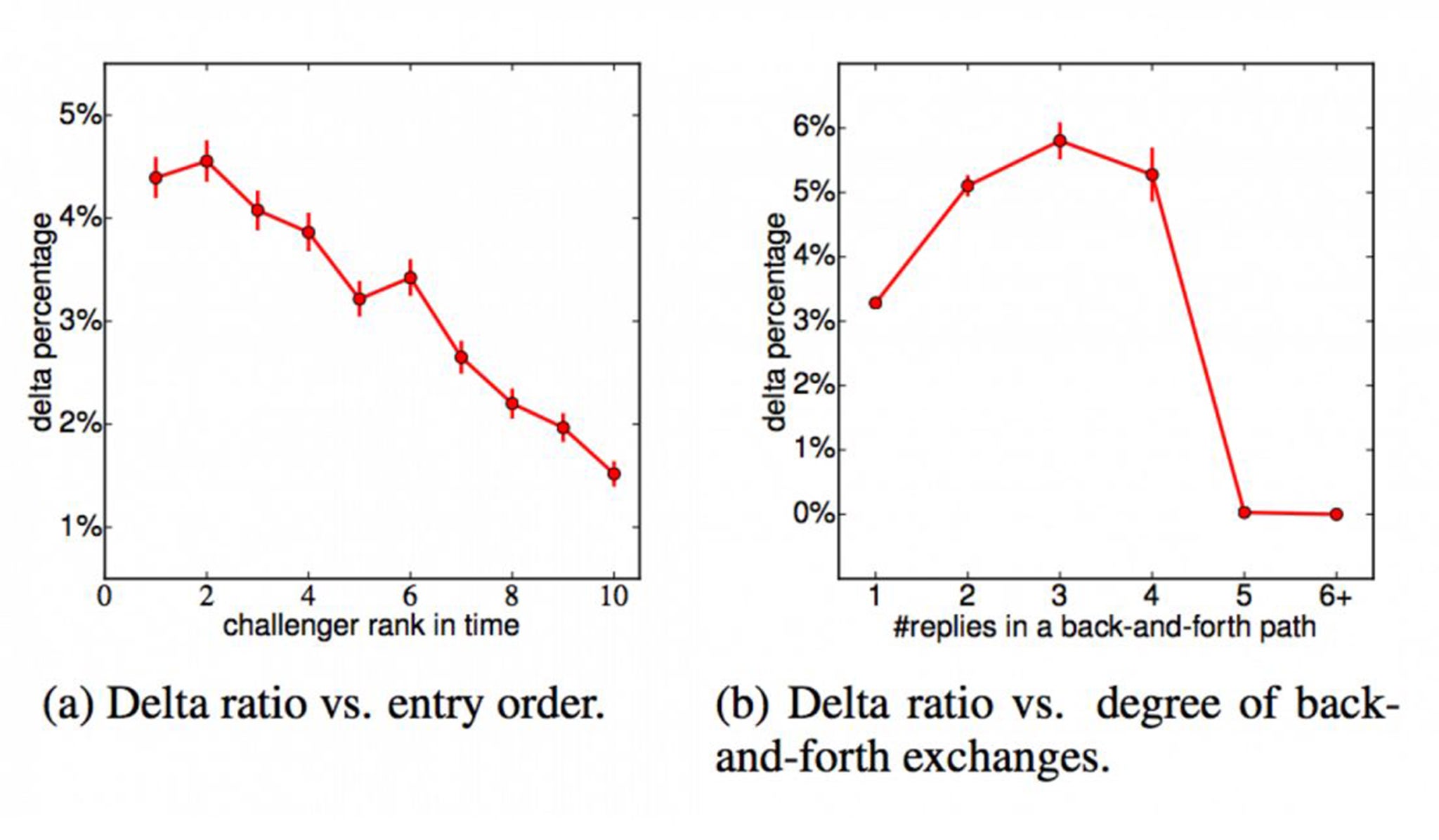How to convince someone to change their mind, according to science
Whether in the form of Twitter feuds or political debates, the universe is constantly clamouring to change your mind

Your support helps us to tell the story
From reproductive rights to climate change to Big Tech, The Independent is on the ground when the story is developing. Whether it's investigating the financials of Elon Musk's pro-Trump PAC or producing our latest documentary, 'The A Word', which shines a light on the American women fighting for reproductive rights, we know how important it is to parse out the facts from the messaging.
At such a critical moment in US history, we need reporters on the ground. Your donation allows us to keep sending journalists to speak to both sides of the story.
The Independent is trusted by Americans across the entire political spectrum. And unlike many other quality news outlets, we choose not to lock Americans out of our reporting and analysis with paywalls. We believe quality journalism should be available to everyone, paid for by those who can afford it.
Your support makes all the difference.The universe is constantly clamoring to change your mind about something – whether it’s in the form of Twitter feuds, political debates or Mountain Dew’s horrible “puppy monkey baby” Super Bowl ad. But how many of these appeals to alter our views really succeed?
A new paper from researchers at Cornell University sheds some light on how and why people are convinced to change their minds. The researchers analyzed nearly two years of postings on ChangeMyView, a forum on the internet community reddit where posters present an argument and invite people to reason against them.
These arguments on ChangeMyView range widely in terms of topic. “People don’t define who they are, their genetics and environment do,” reads one. “Zoos are immoral,” says another. “I think that the vast majority of Bernie supporters are selfish and ill-informed,” reads one thread, which received 1125 comments in one day.
Unlike the mindless clashes you often see on Twitter or Facebook, commentors on ChangeMyView explain their reasoning at length. The forum also requires the poster let others know when their view has changed by awarding the other poster a ∆ (a “delta,” the Greek letter used in math to denote change) and explaining exactly what modified their view. By looking at these exchanges, the researchers can study exactly what persuades people outside the laboratory and also have access to mass quantities of data.
Their research suggests that the arguments that end up changing people’s minds have certain dynamics. Numbers are important: The more people that try to persuade the original poster, the greater the likelihood of changing their view. So is timing: Those who write back first to the post first are more likely to persuade the original poster than those who write later, as the lefthand chart below shows.
Interestingly, the researchers find that some back-and-forth exchange between participants is a sign of success in convincing someone, but that a lot of it is a sign of failure -- shown in the chart below on the right.
After five rounds of back-and-forth comments between the original poster and the challenger, the challenger has virtually no chance of receiving a delta, they write. “Perhaps while some engagement signals the interest of the [original poster], too much engagement can indicate futile insistence.” One reddit user summed it up like this: “Lesson being that if you haven’t convinced someone after four replies each, your argument isn’t gonna be the one to move them.”

There are also significant differences in language between arguments that persuade and those that don't.
The researchers find that the factor most linked with successfully persuading someone is using different words than the original posts do – a sign that commentators are bringing in new points of view. They find that longer replies tend to be more convincing, as do arguments that use calmer language.
The research suggests that using specific examples is a big help. Definite articles (“the” rather than “a”) are more present in persuasive arguments, suggesting that it helps to speak in specifics. Successful arguments use the phrases “for example,” “for instance,” and “e.g.” more often. Quotations and question marks don’t appear to help the argument, but including links to supporting material does.
Surprisingly, they find that hedging – using language like “it could be the case” – is actually associated with more persuasive arguments. While hedging can signal a weaker point of view, the researchers say that it can also make an argument easier to accept by softening its tone.
Finally, they argue that language tells us something about whether the person’s mind can be changed in the first place. The researchers note that the language a person uses to express the original opinion shows, to a great extent, whether their opinion is malleable or not.
They find that first person pronouns (“I”) indicate an opinion is malleable, but first person plural pronouns (“we”) suggest the opposite. Changeable opinions are also expressed more calmly and more positively, using words including “help” and “please,” and more adjectives and adverbs.
Stubborn views are expressed with more excitement, and using decisive words like “anyone,” “certain,” and “nothing,” and superlative adjectives like “worst” and “best.”
Use these strategies when you argue, but remember that convincing someone of your point of view is no easy task. The researchers point out that, even in this reddit forum where people are expressly charged with being open-minded, opinions don’t change in the majority of cases.
© Washington Post
Join our commenting forum
Join thought-provoking conversations, follow other Independent readers and see their replies
Comments